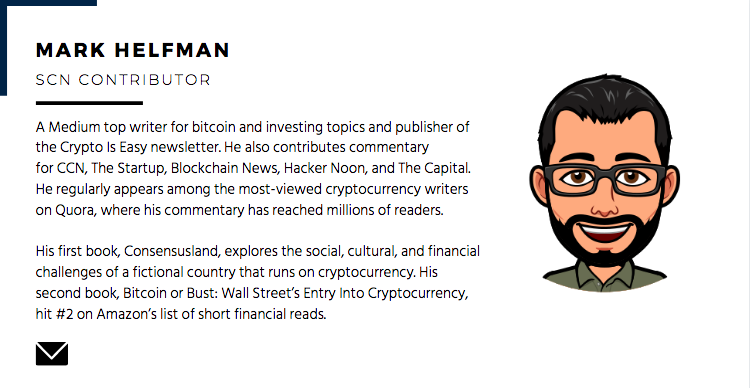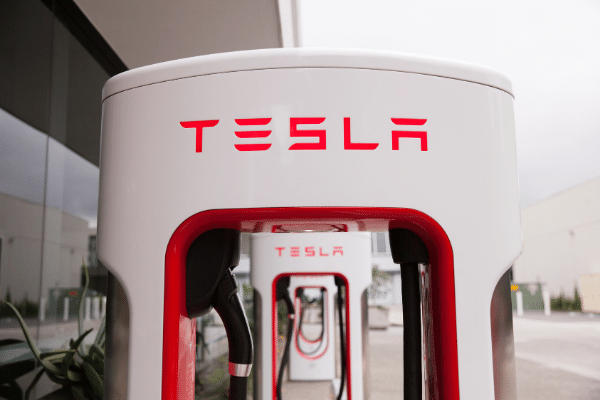
Cryptocurrency is full of people who believe in old economic theories that have never been tried in the real world. There’s an almost zealous adherence to esoteric principles that seem to have no place in our modern lives.
Fitting, perhaps, for a niche technology whose earliest followers—and most ardent advocates—came to it as an escape from convention. You would expect them to hold unconventional beliefs.
For the rest of us, convention is ok. Mainstream economics seems to work well enough.
Or does it? Is it really so much better than those archaic theories bitcoiners throw around?
When I studied economics in college, a professor told my class a joke about a doctoral student who presented her dissertation idea to her mentor. After she finished, her mentor said “yes, that works in practice, but does it work in theory?”
Modern economics relies heavily on “all else being equal” and the empirical study of human activities that you can never replicate in a scientific setting.
Once you step into the real world, all else is never equal.
With time and effort, research always reveals some truths, principles, and goals. Nice, but that only get you so far. You’ll never find a one-handed economist.
Does printing money lead to inflation? That’s a very basic question, yet economists disagree. Sometimes, printing money leads to inflation. Sometimes, it doesn’t. We have theories, not proof.
Cryptocurrency can change that.
A proving ground for monetary discovery
With cryptocurrency, you can create a money system from your laptop and scale it globally, instantly, in any configuration you want, with all participants forced to follow your rules.
As a result, you can test economic theories in the real world, with scientific precision and all the controls you need.
Until now, we did not have any technology that could do this.
Just as telescopes forced us to rethink our assumptions about the earth and electricity forced us to rethink our assumptions about physics, cryptocurrency will force us to rethink our assumptions about money.
What discoveries will we find? What innovations will we create?
Everything is possible.
For example, a group of financial engineers created yEarn Finance, a platform for finding the best lending rates on stablecoins. This project places governance entirely in the hands of token holders. It has no foundation, investors, or management. It’s just a computer program. Nothing else.
Or Ampleforth, a financial network that rebalances users’ funds whenever the value of its token, AMPL, moves too much. As a result, users can preserve the purchasing power of their money as the network grows or shrinks.
Some cryptocurrency teams like GoodDollar have started exploring universal basic income platforms. They’re trying to figure out how to give everybody access to money without moral hazards and market inefficiencies.
Others have started testing other approaches to money.
The teams behind these tokens make no secret about their purpose—monetary experiments. Token holders are almost exclusively speculators who (should) realize the risks they’re taking.
While these projects may fail, they will lead to profound insights about humans, markets, and money. They will lay the building blocks for an explosion of monetary discovery every bit as significant as the scientific revolution.
Vive la révolution
As more tokens like yEarn, GoodDollar, and Ampleforth gain momentum, you will hear people revert to the old, trite arguments over what is money and what is not money.
They will focus on cryptocurrency as a way to transact or investment, rather than a way to create trustless networks.
They’ll miss the true revolution—humans organizing themselves without a central authority to coerce them into doing things against their own best judgment. They won’t see how blockchain technology breaks down the intermediaries and gatekeepers that cause bottlenecks, complexities, costs, and conflict. They won’t understand how it promotes choice and community without undermining consensus and governance, nor care how it creates fairer, more inclusive financial and social networks.
With programmable money, you can choose between the systems you want to use. If you don’t like your options, you can create your own.
Think of the power humanity can harness from this technology.
The urgency of now
Now is not the time to obsess about the supposed Cantillon effect of central banks or the cruel misery of fiat.
People are losing faith in their leaders and questioning the traditional financial system. Investors have no good places to put their money anymore. Rich people want to protect their wealth against currency devaluation and reckless governments. Businesses need better digital goods and services to prosper in the post-COVID-19 world. Everybody worries about how long our economic crisis will last, and what will happen to them before it ends.
These are real problems, today.
We’re at the start of a massive shift in global monetary thought, moving away from economists and political theorists towards entrepreneurs, computer scientists, developers, mathematicians, and common people like you and me.
For the first time, we have the technology to create a new world order based on open, permissionless financial networks and trustless, censorship-resistant communities. Monetary innovation and choice. Inclusive markets.
We no longer need theories to get us there. We have the technology to make it real.
But price comes first
In a few decades, everybody will look back on today and realize the importance of this moment.
Until then, everybody will focus on price—as they should.
In five years, you will not have a chance to get 3,000% returns from cryptocurrency, let alone the so-called moonshots you’re dreaming about.
If history serves as our guide, you can expect the cryptocurrency market will get too big, governments will regulate the gains into the hands of rich people and insiders, and many projects will fail and die.
Cryptocurrency will still serve a valuable role, but you and I will no longer have a chance to make money off of that. As always, those opportunities will go to the wealthy and well-connected. We’ll just use the platforms they create.
Keep in mind: if you only care about making money, you’re missing the whole point.
If you get wrapped up in bull markets and “wen moon” hype cycles, get off your Twitter feed. Stop obsessing over hard and soft money. Take a step back. Look beyond theory, ideology, and investments.
Finally, we can test monetary concepts in the real world. We can go beyond the efficient market theory and Pareto charts. We can observe monetary policy in its purest form, without political influence and interference.
What will we discover?
I can’t wait to find out.
You may also want to read: Why You’re Missing Bitcoin’s Most Revolutionary Feature



